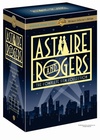


Errol Flynn & Olivia de Havilland
Filmography | Articles | Awards | Downloads | Bibliography | Links | Image Credits | Errol Flynn | Olivia de Havilland
| Article 4 |
Four's a Crowd," Warner Brothers Comedy, Arrives at the Music Hallby B.R.C.New York Times August 12, 1938, page 11Discounting its inordinate length and the leisurely diffuseness of its narrative, "Four's a Crowd," at the Music Hall, may be listed among the more successful comedies of, on the whole, a rather tragic Summer. Its unblushingly superficial attitude toward romance (you never know or care who's going to marry who), multimillionaire philanthropies, and newspaper publishing, are amusing qualities which help to conceal the fact that it is equally irresponsible toward its own characters and incidents. The result is something between whimsy and farce, an unserious knock-about hybrid which, for want to a better term, we might as well call whamsy. The romantically puzzling thing is that it concerns four personable people who could as easily be paired off one way as another. Who would grieve if Errol Flynn chose Olivia de Havilland, the heiress, instead of Rosalind Russell, the very upper-class sob-sister, or if the remaining fair charmer found herself stuck with the only just slightly less eligible Patric Knowles? These are emotional hair-splittings, and so the tender permutations which follow one another in some instances too rapidly for the human eye, are at worst merely immaterial. We won't disclose the answer here, because if we did there would be nothing left for the picture to tell. The one really superb and understandable character, despite a certain unfortunate resemblance to Walter Connolly, is John P. Dillingwell, Olivia's multimillionaire grandfather, who glories in his fame as America's most hated capitalist. Beguiling his leisure with a toy railroad system, old J.P. loves to sell the market short during business hours. Having threatened to set his dogs on the charming Mr. Flynn -- an Ivy Lee type of reputation-rebuilder who is seeking him as a client -- he actually calls out a pack of ravening Great Danes, not just once (which would have been funnier) but three times. Not even a shower of tomatoes from a mob subsidized by the perfidious Mr. Flynn can break his plutocratic spirit. In short, we could have grown to love old J.P., and we are sorry the Warners allowed so solid a character to be wasted among the vague and insubstantial figures of "Four's a Crowd." © 1938 New York Times |
Return to the Index of Articles. |
| Current Contest Prize: |
|---|
| Now in Print! |
|---|
| Now on DVD! |
|---|
Buy Videos & DVDs |
|
Buy Movie Posters |
|
Buy Movie Posters |
|
Classic
Movie Merchandise |
|
![]() Printer-friendly version.
Printer-friendly version.
![]() Return
to the top.
Return
to the top.
Last updated:
December 16, 2008.
Reel Classics is a registered trademark of Reel Classics, L.L.C.
© 1997-2009 Reel Classics, L.L.C. All rights reserved. No
copyright is claimed on non-original or licensed material.
Terms of
Use.










